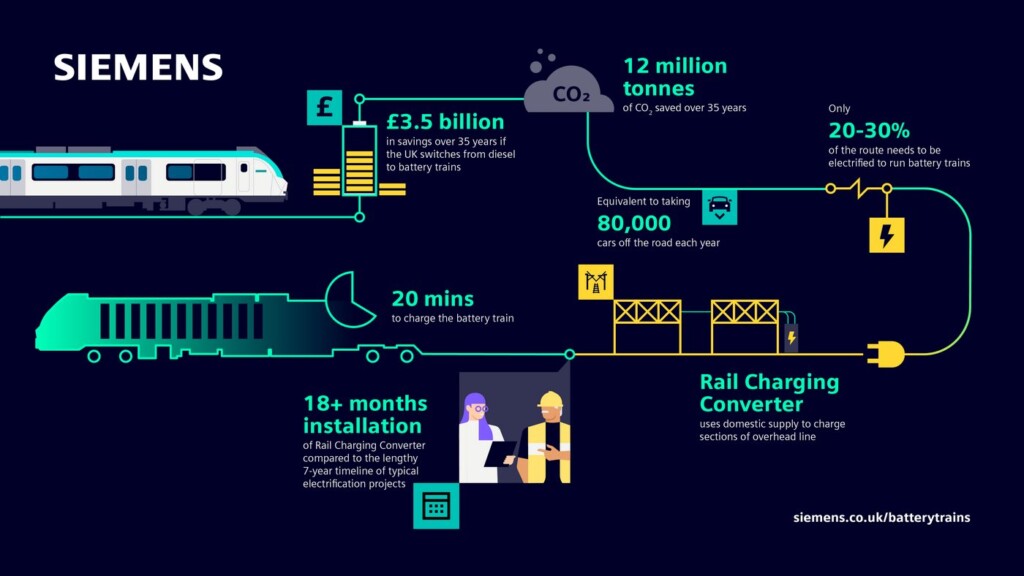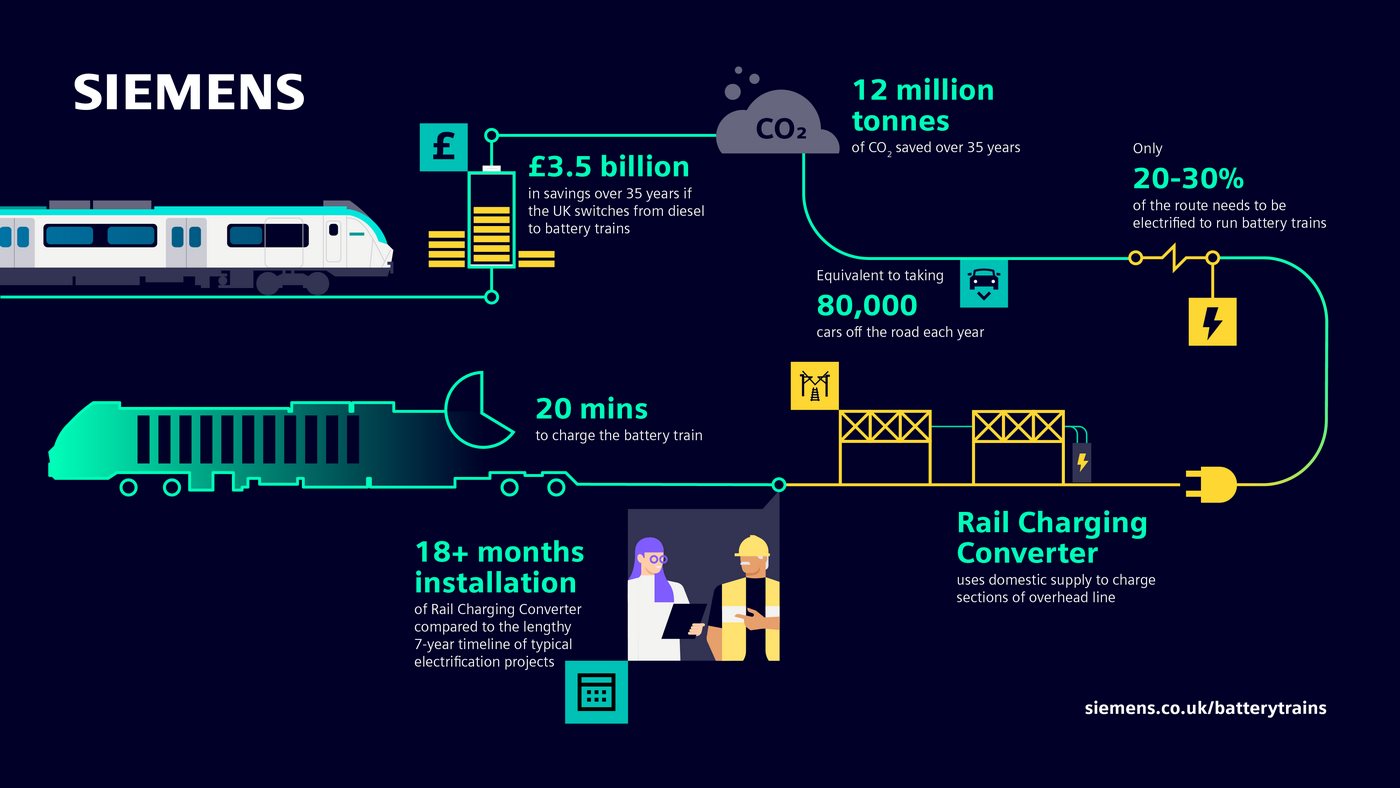
Thanks to performance and operational data from their trains in Germany, the rail giant Siemens is convinced its new battery-powered trains can completely replace diesel locomotives in the UK.
The change stand would stand to save Britain £3.5 billion and 12 million metric tons of carbon emissions—or the equivalent of taking 80,000 internal combustion cars off the road—over 35 years.
It’s also the equivalent of planting a forest across an area the size of the Isle of Man and saving 1.8 million liters of diesel fuel per year.
Siemens Mobility’s new Train Manufacturing Facility in Goole, East Riding of Yorkshire, would manufacture the new trains that are called ‘bi-mode’ trains, meaning that they can run on battery charge or from the electrified wires that already exist above British railways.
This in part is where the significant savings come in because most of Britain’s rail track is already electrified, and because a large battery pack is carried onboard, only 20% to 30% of a railway needs to be electrified for a train to complete its journey without using all the charge.
Furthermore, Siemens already has modular converting systems that allow trains to charge directly from the power grid in just 20 minutes. All this, the company says, is enough to cut five and a half years off the required time to complete a transition from diesel to battery-powered trains
MORE RAILWAY NEWS: High-Speed Railway Progresses Towards a 200-mph Train Line From Dallas to Houston
“Our battery trains, which we’d assemble in our new Goole factory in Yorkshire, can replace Britain’s aging diesel trains without us having to electrify hundreds of miles more track in the next few years,” said Sambit Banerjee, Joint CEO for Siemens Mobility UK & Ireland.
“So, on routes from Perth to Penzance, passengers could be traveling on clean, green battery-electric trains by the early 2030s. And the best thing is that this would save the country £3.5bn over 35 years.”
UK ELECTRIFIED RAILS: Hitachi Rail Develops Battery Unit Set to Decarbonize Rail Travel on Retrofitted Trains
A number of train operators are looking to replace their aging diesel fleets, including Chiltern, Great Western Railway, Northern, ScotRail, TransPennine Express, and Transport for Wales.
SHARE This Story About A No-Brainer Transition Towards Green Rail…





















On balance, this is a big step in the right direction. The shortcomings of battery technology notwithstanding, we have just two viable options in the long run: use dramatically less energy or develop sustainable energy technologies that provide the power we need with minimal environmental damage. Continuing to pollute our air and heat the planet is not a viable long-term option.